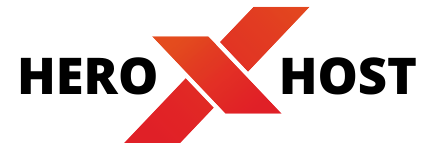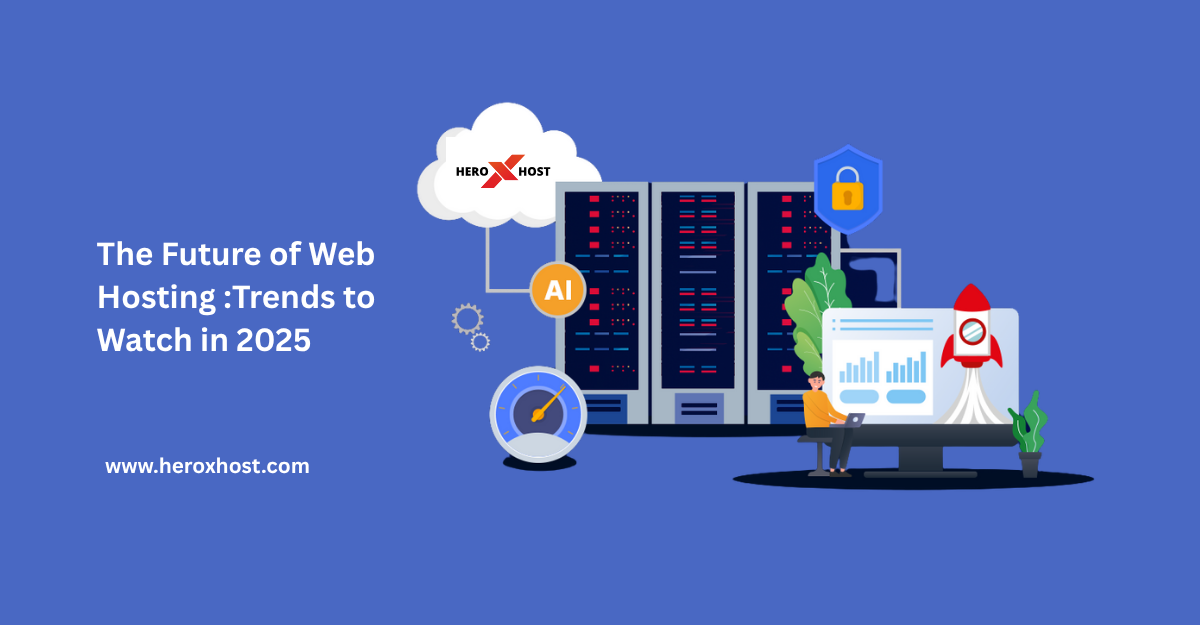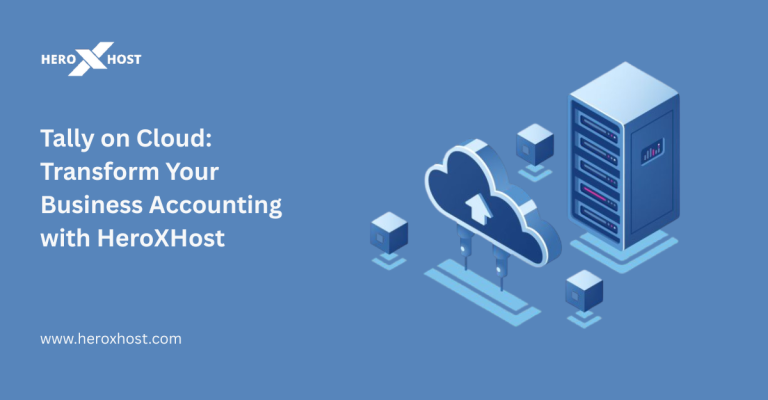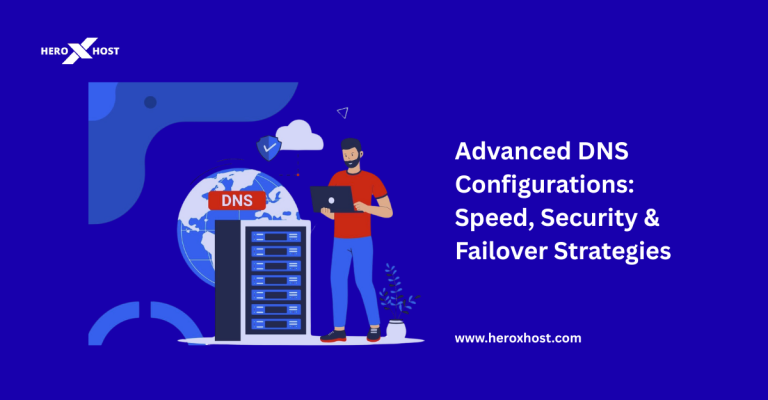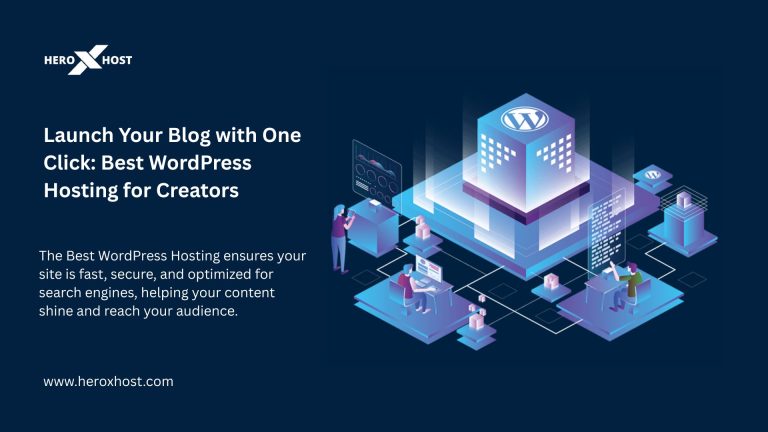Web hosting isn’t what it used to be; it’s grown far past the era of dusty data centers and basic shared servers. Today, choosing the right web hosting solution feels like picking the perfect foundation for your digital home. Just as you wouldn’t build a house on shaky ground, your website needs reliable web hosting to thrive online.
The web hosting landscape is evolving rapidly, and 2025 promises to bring exciting changes that will reshape how we think about hosting websites. Whether you’re a small business owner, a blogger, or an enterprise looking to scale, understanding these trends will help you make smarter decisions about your web hosting needs.
Table of Contents
The Rise of AI-Powered Web Hosting
Artificial intelligence is transforming web hosting in ways we couldn’t imagine just a few years ago. Think of AI as your personal hosting assistant that never sleeps, constantly monitoring your website’s performance and making adjustments behind the scenes.
Modern web hosting providers are now using AI to predict traffic spikes before they happen. For instance, if you run an e-commerce site, AI can detect unusual patterns that suggest a viral social media post might drive unexpected traffic your way. As a result, your resources automatically scale to handle the increased demand. Additionally, AI-driven security systems are quickly becoming the new norm. These intelligent systems learn from millions of attack patterns, making them incredibly effective at stopping threats before they reach your website. It’s like having a security guard who remembers every face and can spot trouble from miles away.
Green Web Hosting: The Environmental Revolution
Environmental consciousness is driving a major shift in web hosting. Green web hosting isn’t just a trend; it’s becoming a necessity as businesses and consumers demand more sustainable digital solutions.
Many hosting providers are now powering their data centers with renewable energy sources like solar and wind power. Additionally, they’re implementing advanced cooling systems that use significantly less energy than traditional methods. Some companies are even going carbon-negative, removing more carbon from the atmosphere than they produce.
This eco-friendly approach doesn’t just help the planet—it helps your budget too. Green hosting solutions often come with lower long-term costs due to improved efficiency. Moreover, customers increasingly prefer businesses that demonstrate environmental responsibility.
Edge Computing and Web Hosting
Edge computing is revolutionizing how web hosting providers deliver content to users worldwide. Instead of storing everything in one central location, edge computing distributes your website’s content across multiple locations closer to your visitors.
Imagine your website as a pizza delivery service. Traditional hosting is like having one central kitchen that delivers everywhere, while edge computing is like having multiple kitchens in different neighborhoods. Your customers get their “digital pizza” much faster because it doesn’t have to travel as far.
This technology is particularly beneficial for businesses with global audiences. A visitor from Tokyo will access your content from a server in Asia, while someone in London connects to a European server. The result? Lightning-fast loading times regardless of where your visitors are located.
Serverless Web Hosting Solutions
Serverless hosting is gaining tremendous popularity, and it’s easier to understand than it sounds. Don’t worry—there are still servers involved, but you don’t need to manage them. It’s like staying in a hotel where you enjoy the room without worrying about maintenance, utilities, or housekeeping.
With serverless web hosting, you only pay for the resources you actually use. If your website has quiet periods, you’re not paying for idle server capacity. However, when traffic increases, the system automatically scales up to meet demand. This flexibility makes serverless hosting especially appealing to startups and businesses that experience fluctuating traffic.
The serverless model also eliminates many technical headaches. You don’t need to worry about server updates, security patches, or infrastructure management. Instead, you can focus on what matters most—creating great content and growing your business.
Enhanced Security Features in Web Hosting
Cybersecurity threats are becoming more sophisticated, and web hosting providers are responding with advanced security measures. Modern hosting solutions now include features that were once considered premium add-ons.
Multi-factor authentication is becoming standard across all hosting plans. This means that even if someone gets your password, they still can’t access your hosting account without additional verification. It’s like having multiple locks on your front door—one key isn’t enough.
Automated backups are also evolving. Instead of daily backups, many providers now offer real-time backup solutions that save your website data continuously. If something goes wrong, you can restore your site at any point in time, minimizing data loss and downtime.
The Growing Importance of Website Speed
Website speed has always been important, but it’s becoming absolutely critical for web hosting success. Search engines like Google now consider page loading speed as a major ranking factor. Slow websites don’t just frustrate visitors—they also hurt your search engine visibility.
Modern web hosting services are addressing this challenge through various optimization techniques. Content Delivery Networks (CDNs) are becoming standard features rather than expensive add-ons. These networks store copies of your website on servers worldwide, ensuring fast loading times regardless of your visitor’s location.
Additionally, many hosting providers now offer built-in caching solutions that store frequently accessed data in memory. This means your website can serve content almost instantly to returning visitors. It’s like having your most popular items at the front of a store—customers find what they need quickly and easily.
Specialized Web Hosting for Different Needs
The one-size-fits-all approach to web hosting is becoming obsolete. Now, hosting providers craft specialized offerings to meet the distinct demands of various sectors.
E-commerce hosting, for example, now includes built-in shopping cart software, payment processing integration, and inventory management tools. These specialized features save business owners time and money while providing a better experience for their customers.
Similarly, hosting for content creators includes tools for media optimization, automated social media posting, and analytics dashboards. These features help bloggers and creators focus on content creation rather than technical management.
The Future of Web Hosting Management
Managing web hosting is becoming more user-friendly, even for complete beginners. Modern control panels use intuitive interfaces that make complex tasks simple. Installing software, managing domains, and monitoring performance can now be done with just a few clicks.
Voice-activated hosting management is also on the horizon. Soon, you might be able to check your website’s performance or install new software by simply speaking commands to your hosting provider’s virtual assistant.
Furthermore, predictive analytics are helping hosting providers anticipate problems before they occur. With this approach, you’ll face fewer unexpected disruptions and maintain top-notch website performance.
Choosing the Right Web Hosting Provider
With so many options available, selecting the right web hosting provider can feel overwhelming. But if you focus on a few key factors, choosing becomes much easier.
First, consider your specific needs. A personal blog has different requirements than a large e-commerce site. Look for providers that offer solutions tailored to your particular situation rather than generic packages.
Second, pay attention to customer support quality. Technical issues can arise at any time, and having responsive, knowledgeable support can make the difference between a minor inconvenience and a major disaster. Look for providers that offer 24/7 support through multiple channels.
Finally, consider the provider’s reputation and reliability. Read reviews from actual customers, not just testimonials on the company’s website. A hosting provider with a proven track record of uptime and customer satisfaction is worth the investment.
What This Means for Your Business
These web hosting trends have practical implications for businesses of all sizes. Understanding them can help you make informed decisions that support your growth and success.
For small businesses, the move toward user-friendly hosting solutions means you can manage your online presence without extensive technical knowledge. Automated features handle routine maintenance, while intuitive interfaces make updates and changes straightforward.
Large enterprises benefit from the scalability and security improvements in modern hosting solutions. As your business grows, your hosting can grow with you without requiring complete system overhauls.
Conclusion
The future of web hosting is bright, with innovations that promise to make websites faster, more secure, and easier to manage. From AI-powered optimization to environmentally friendly solutions, these trends are reshaping the hosting landscape for the better.
As we move through 2025 and beyond, staying informed about these developments will help you make smart decisions about your web hosting needs. “Hosting is the foundation of your digital home—select it carefully to ensure your website stands strong and succeeds.
The key is to work with a hosting provider that embraces these trends while maintaining the reliability and support you need. By doing so, you’ll be ready to take advantage of whatever exciting developments the future of web hosting brings.
FAQs
1. What are the biggest trends shaping the future of web hosting?
Ans. The future of web hosting is being driven by AI-powered optimization, edge computing for faster content delivery, serverless hosting models, green hosting for sustainability, and enhanced security measures. These trends make websites faster, safer, and more scalable than ever before.
2. How does AI improve web hosting performance and security?
Ans. AI in web hosting predicts traffic spikes, automatically scales resources, and uses machine learning to identify and block cyber threats. This ensures your website stays fast and secure with minimal manual intervention.
3. Is green web hosting really worth it for businesses?
Ans. Absolutely. Green hosting not only reduces your carbon footprint by using renewable energy but also often results in lower long-term costs due to energy-efficient operations. It also enhances your brand’s reputation among eco-conscious customers.
